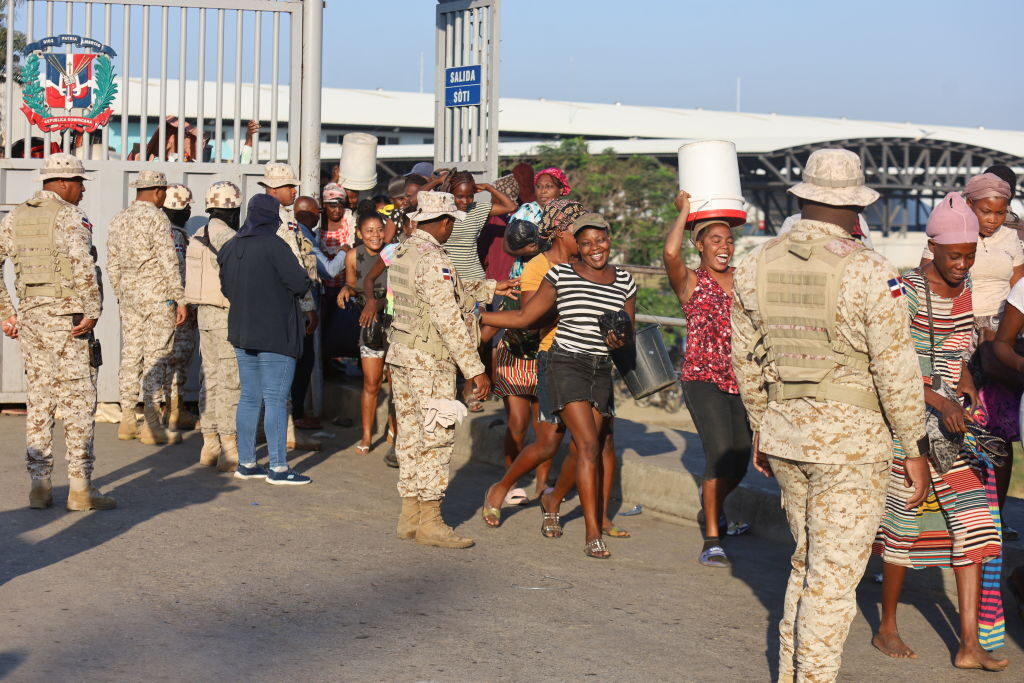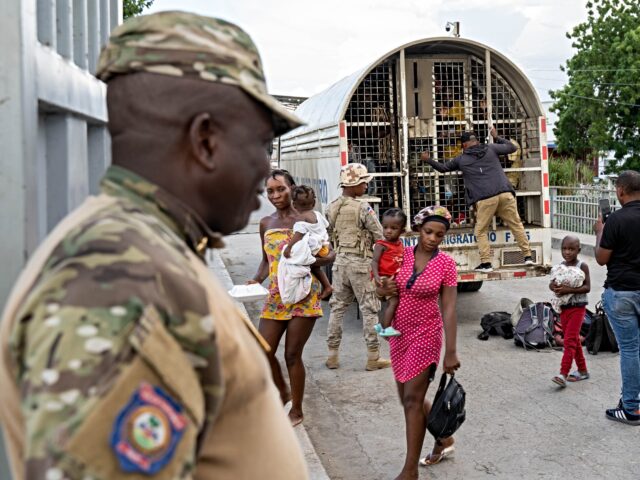The Dominican Republic’s Foreign Minister Roberto Álvarez said on Wednesday that his country will continue to deport illegal Haitian migrants, rejecting a United Nations request that urged the country to stop “forced deportations” of Haitian citizens.
Neighbors Haiti and the Dominican Republic each occupy one side of the territory of Hispaniola Island, one of the four Caribbean Greater Antilles alongside Cuba, Jamaica, and Puerto Rico.
Haiti has experienced a multi-year intense period of turmoil and criminal violence that worsened in 2021 with the assassination of President Jovenel Moïse, who was shot dead in the presidential residence.
The already precarious situation deteriorated this week after organized armed militias led by Jimmy “Barbecue” Cherizier took control of the country, forcing the resignation of Prime Minister Ariel Henry on Monday. Henry is currently stranded in Puerto Rico, finding himself unable to return to Port-au-Prince as the militias control the airport.
In light of Haiti’s worsening situation. Dominican authorities launched a deportation campaign to remove illegal Haitians this week, transporting them in trucks, and dropping them at the border with Haiti.
🇴🇹 | ÚLTIMA HORA: La República Dominicana está realizando una operación masiva de deportación de haitianos ilegales, trasladándolos en camiones hasta la frontera. pic.twitter.com/hqHjcNYTCs
— UHN PLUS (@UHN_Plus) March 13, 2024
In a press conference on Wednesday, U.N. Secretary-General spokesman Stéphane Dujarric urged the Dominican Republic, as well as other countries, to “respect the human rights” of Haitians and avoid “forced deportations.”
“We don’t want mass or forced deportations of people to a country that is clearly not safe,” Dujarric said.
Dominican Foreign Minister Roberto Álvarez rejected Dujarric’s statements minutes later in remarks given during his participation in a private media encounter.
“We respect Stéphane Dujarric’s opinion, but we have an established policy that for reasons of national interest we are returning to Haiti all those people who are illegally in Dominican territory according to our legislation,” Álvarez said.
“The situation in Haiti is a national security issue for the Dominican Republic and that must be kept in mind. Therefore, what the spokesperson of the General Secretariat, Stéphane Dujarric, may ask of other countries is understandable, of other countries that are not a neighboring country of Haiti’s,” he asserted.

Haitians cross the border between Quanamienthe in Haiti and Dajabon in the Dominican Republic to work in the binational market in Dajabon, Dominican Republic on March 8, 2024. (ERICKSON POLANCO/AFP via Getty Images)
Álvarez asserted that the government of the Dominican Republic has offered a “considerable” contribution to Haitian foreigners that entailed expenditures of more than 26 percent of the nation’s budget during 2023.
“It is impossible to continue with those figures,” Álvarez said. “We have no alternative but to continue with the return of any person who is illegal in the Dominican Republic. We do it respecting international conventions and human rights treaties.”
The Dominican foreign minister acknowledged that sometimes improper situations occur during the deportation process that they try to correct in the shortest possible time because “there is a desire and willingness of all local authorities to comply with these rules”.

COMMENTS
Please let us know if you're having issues with commenting.